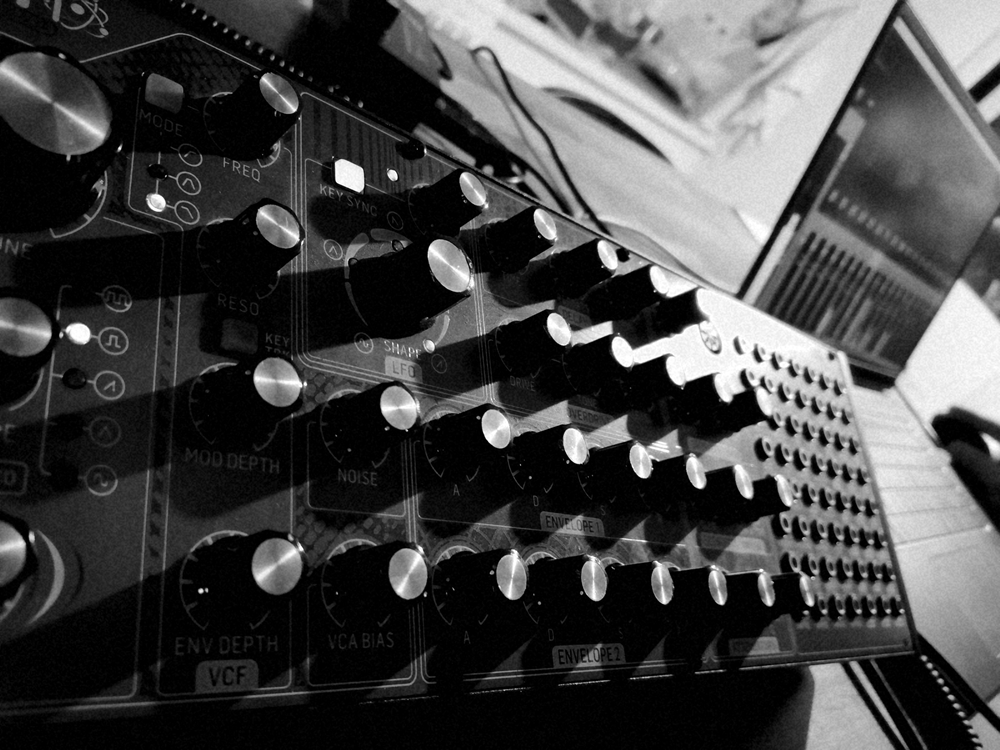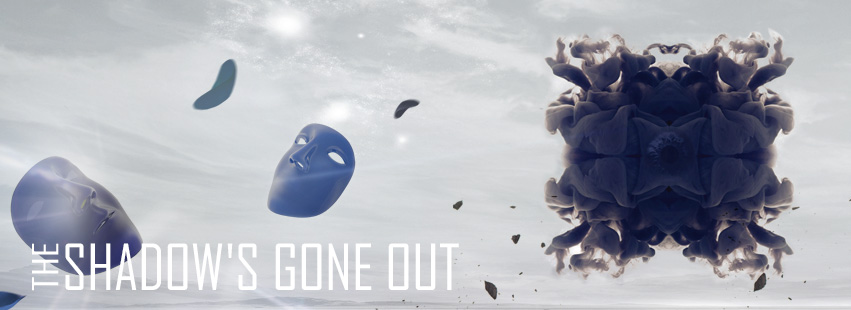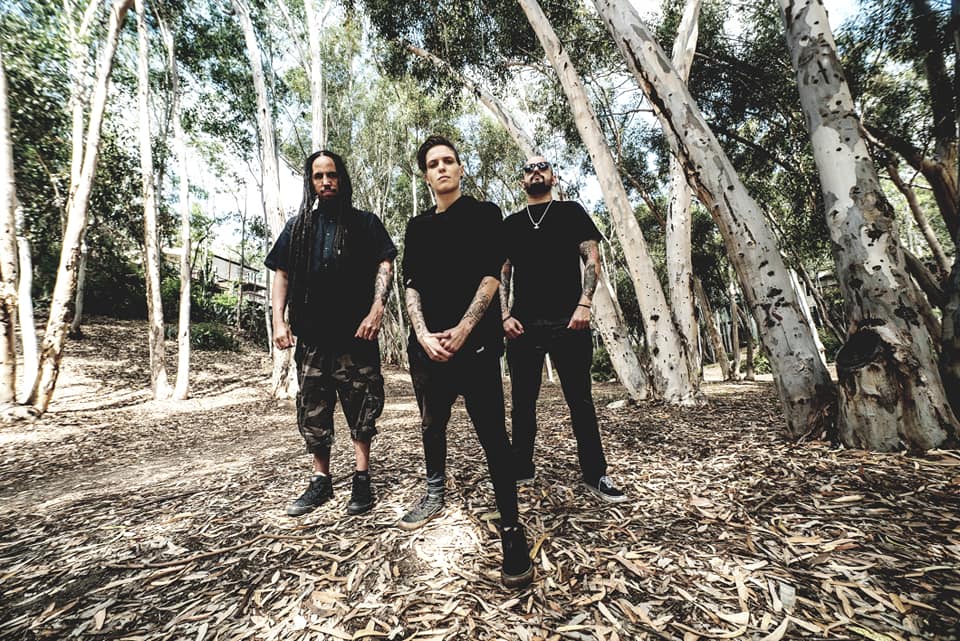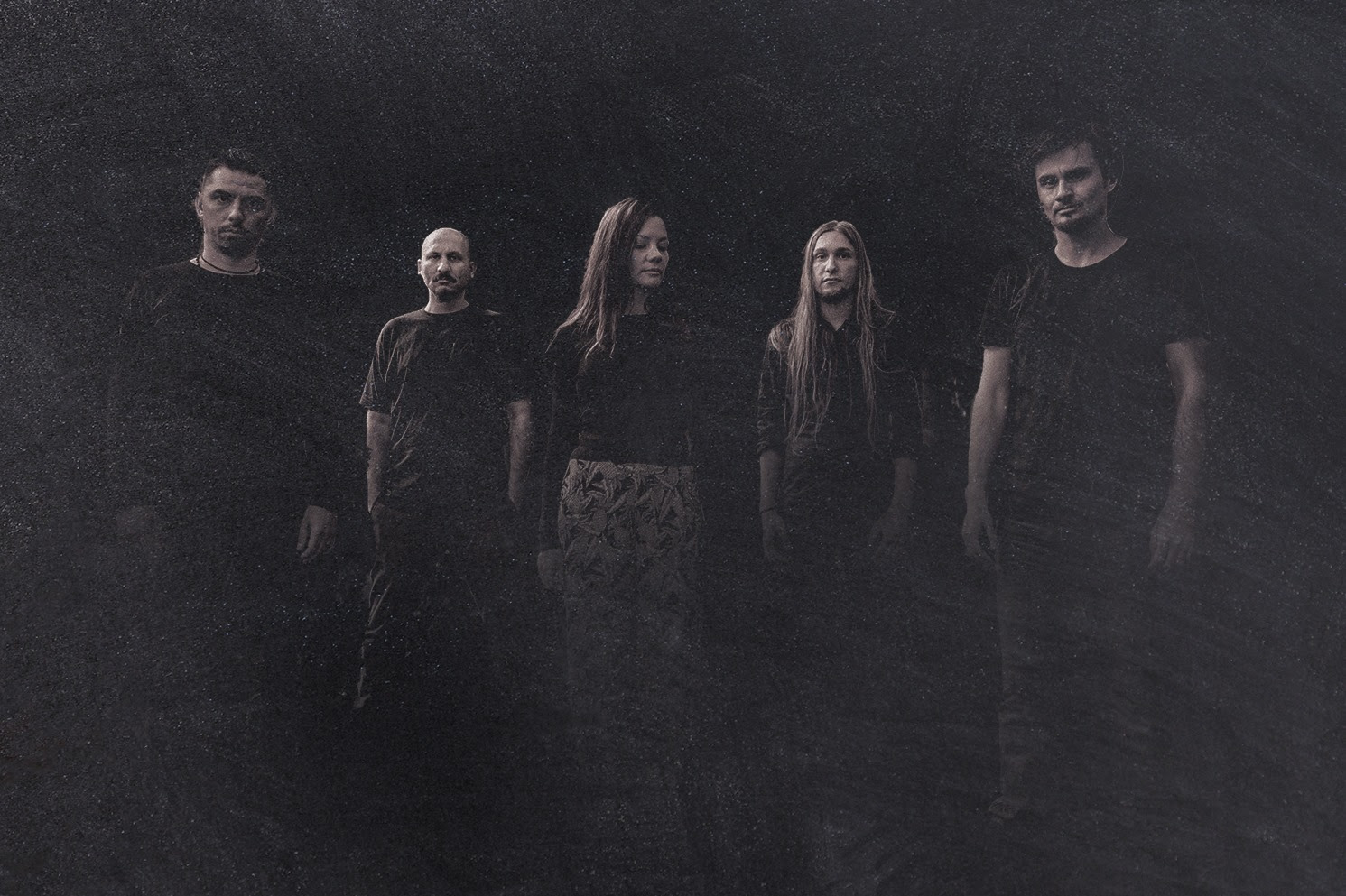THE SHADOW’S GONE OUT is an instrumental industrial rock band based in Tours (France), with only two members, Julien Nourtier on drums and samples and Anthony Enault on bass. Influenced by underground music from England and the United States, there is no main instrument, their approach to sound revolves around music created with bass, drums, electro, and industrial samples. Their debut EP, “Final Alarm,” is one of those moments when one click revealed a gem.
Hi guys. Thanks for chatting with us. How did you two meet? How did this put this band together?
Julien: Thank you for asking us for this interview. We are The Shadow’s Gone Out, and we came from Tours, France.
I started a band with a guitarist friend in 2019, and Anthony, our bassist, saw us play our 1st concert and offered to join.
Our references were not quite the same, and we had some doubts, but Anthony turned out to be very invested and integrated perfectly into what we were doing. Unfortunately, we had to stop playing for a few months in 2020 because of Covid. Then at the end of the lockdown, in May 2019, our guitarist went to live far from Tours.
As Anthony and I wanted to continue, we both started working on the material that we had, with the idea of doing an Ep as soon as everything was ready. We only had to find a name, and we decided to call ourselves The Sky’s Gone Out after the Bauhaus album, but there was already a group with that name, so we changed it, and it became The Shadow’s Gone Out. We are very happy with this change, which corresponds well with our music
Was music always a big part of your life? Can you recall your first musical experience?
Julien: I have been making music since my childhood. I started with the clarinet when I wanted to play drums.
I finally started taking drum lessons around 15 and have never stopped playing since. From the moment I was able to bang on a drum kit, I knew I couldn’t stop. It was a magical moment in my teenage life. Now I’m a drum teacher, and I take this opportunity to say hello to my students who have been following me for 14 years now!
Anthony: I started playing the guitar when I was in high school with a friend. Then I wanted to try the bass, which immediately thrilled me. We were trying to cover “Nirvana’s Unplugged” record.
Is there a specific philosophy or worldview underlying your work?
Julien: Anticipation literature interests me a lot, as well as comics. Reality sometimes trumps fiction. Even if our music is not politicized, the titles of our songs and our videos are not intended to be moralizing but rather to create a basis for reflection on the world in which we live.
What’s the story behind “Final Alarm”?
Julien: It was a big challenge for us because, as a drummer, I had never written a song alone, and neither did Anthony. I took advantage of the lockdown to start composing. We talked a lot to change and what was wrong. It took longer than expected.
We spent almost a year on the 3 tracks of our ep in order to make them as well as possible. Once our 3 tracks were ready, we took them to listen to the Huitisch Mastering. We did all the post-production work, then did the recording, and finally, the digital release.
Would you say that there’s a vital element of personal, emotional exploration on this EP for you guys?
Julien: As we said above, it was something important for us because neither of us had ever written complete songs. It was quite a challenge for us, even if sometimes it was painful. Even if writing songs remains complicated, we are now much more comfortable than before.
What do you want people to feel primarily when listening to “Final Alarm”? How would the EP be best served?
Julien: If people feel the energy and the sense of urgency that we tried to put into our songs, then I’ll be satisfied. For the moment, the EP is only available digitally, but we hope to release a vinyl version where we can bring together this ep and the upcoming one, which will be released at the end of 2023/beginning of 2024. The best is to come and see us in concert for optimal listening, and why not here!?
Give us an idea of your songwriting. How do you build these beautiful atmospheres?
Julien: Unlike other groups, we compose entirely on the computer before testing the pieces. We usually start from a drum/bass groove or a sample. Then we try to find sounds that might fit, and so on. We often refer to pieces that we like to inspire us. Very often, it’s the sample ideas that give us direction. For example, the use of sirens for the track ‘Final Alarm’ was the guiding idea, then we worked within this framework.
Once our base is made, we assemble all this and create the breaks and the sounds to connect everything. Then we listen several times, we make the changes, then once we are happy with the result, we start playing the piece in our rehearsal room. We then proceed to the readjustment.
We mainly use Ableton and KOMPLETE from Native Instrument as well as various vst. We spend a lot of time going around the sound banks that will serve as our base.
How do you approach the naming of instrumental songs in general?
Julien: Song titles are obviously not always to be found when there are no lyrics. Although there is often an idea when we start the compositions, most of the time, the titles come when the drafts are finished. We very often refer to a sample or an initial idea inspired by the song to find the definitive name. It has to be catchy, and it’s not always easy.
How do you work together and come up with new ideas?
Julien: In general, we create sketches on Ableton by creating the most complete pieces possible. Then we work on them and correct what is wrong. We very often start from an idea of sound or atmosphere. When I have no inspiration, I listen to music or read.
At which point would you guys decide that the song has the exact right length and that it doesn’t have to be longer or shorter?
Julien: With experience, I find it’s easy to make long enough pieces, but it’s also easier to get lost. Making short songs is much harder because you have to be able to tell a story over 3/4 minutes while remaining captivating while being creative, and concise. Anthony Marnat from the Huitisch Mastering studio helped us a lot to go in this direction.
At first, we couldn’t get to the point. Our songs were too long. Anthony Marnat helped us to make cuts and shorten our pieces. We have been using these tips ever since. When our songs are composed, and we have worked on them enough, we have them listened to at the Huitisch Mastering studio, which helps us to cut or lengthen them if necessary. He is a great advisor to us. He’s been with us from the start.
You also have a powerful video for ‘Final Alarm.’ What was the creative process like for this video? How much say did you guys get in it?
Julien: Thank you for enjoying our ‘Final Alarm’ video!
As we are an instrumental music group, we wanted to use video on stage and thus put our clips online. As usual, we preferred to do things by ourselves. Since we knew nothing about video and assembly took us a long time. We use royalty-free videos (while waiting to be able to shoot ours) that we edit.
It is quite a long process because we are new in this field. When we want to make a video, we refer to its title and try to find a theme that serves as a common thread and allows us to find a bank of corresponding images. From there, we start to do assembly tests that we watch several times in order to improve, cut, and remove until we are satisfied with the result. If you like our videos, this makes us very happy.

Tell us more about pedals, effects, and the rest of the gear you’re using!
Julien: All samples and loops are managed with Ableton.
Anthony: Finding the sound we like is not always easy. I have a Gallien Krueger head, a 4*10 cabinet for a round, warm sound, and an orange head with a 15 box to send the pedals. In the pedal, I mainly use duality and my B7K microtubes from Darglass for my basic sound. I also have a POG 2, a delay, chorus, a metal zone, a rat, equalizer, and I have just acquired a Boss ES 8 to make it easier for me to engage the pedals
You have done something pretty difficult, to do, and that is to make a name for yourself as an instrumental band. Where do you see yourselves as a band in the next couple of years?
Julien: Unexpectedly, we have had a lot of positive feedback so far, especially abroad. This motivates us even more to continue. Our first EP was released at the end of 2022, and normally we will release the next one at the end of 2023/beginning of 2024. We hope to do as many concerts as possible and manage to release our first album. It would be a nice gift for us.
Let’s end this interview with some of your favorite albums. Have you found something new lately you would like to recommend to our readers?
Julien: Some of my favorite albums: “Pornography” (The Cure) and “Mezzanine” (Massive Attack). Recently I really liked “In C” by the Young Gods that I saw in concert. It’s an interpretation of Terry Riley’s In C track. I also really liked “Lustful Sacraments” by Perturbator, which I listened to very recently.
Anthony: In my favorite albums, impossible to choose; too many bands. Yob – “Our Raw Heart”; Marilyn Manson – “Antichrist Superstar.” We always have periods when we listen to a more specific style. There I redo all the albums of Mastodon.

Follow THE SHADOW’S GONE OUT on:
Facebook | Instagram | Bandcamp | Spotify
Nicoleta Raicu
Latest posts by Nicoleta Raicu (see all)
- Sacred Modernity: These Churches Are Unlike Anything You Have Seen Before - April 25, 2024
- Multimedia Artist OIEE Talks New Music & Visual Ideas - April 24, 2024
- Hottest Music Collabs Right Now - April 24, 2024



